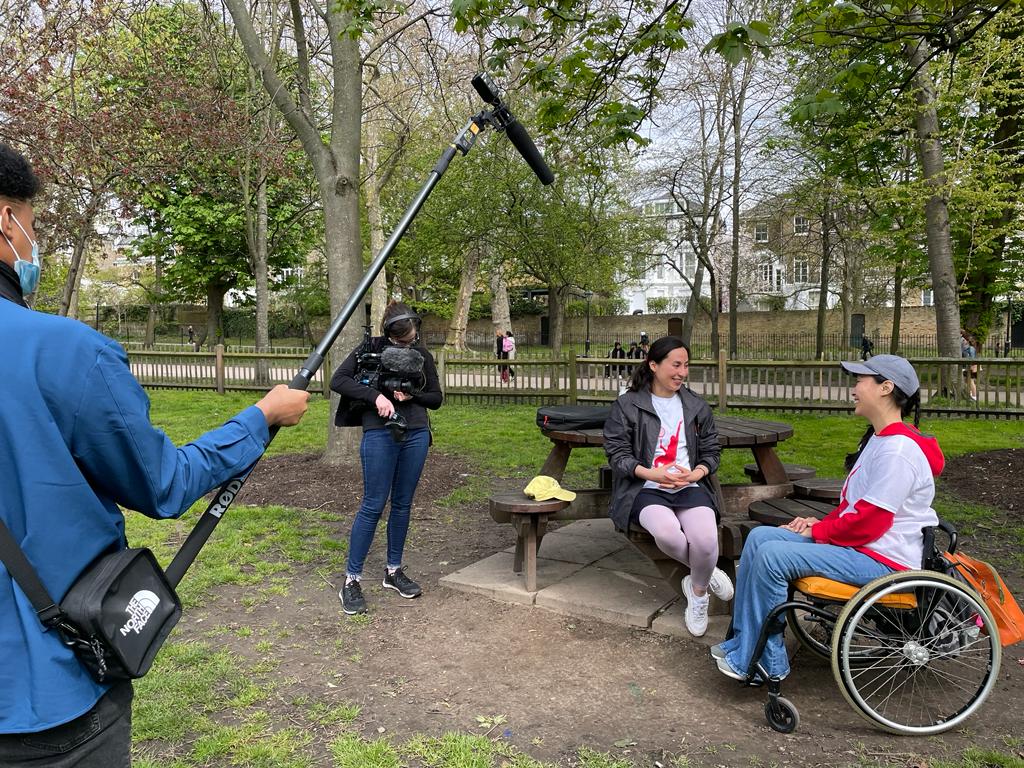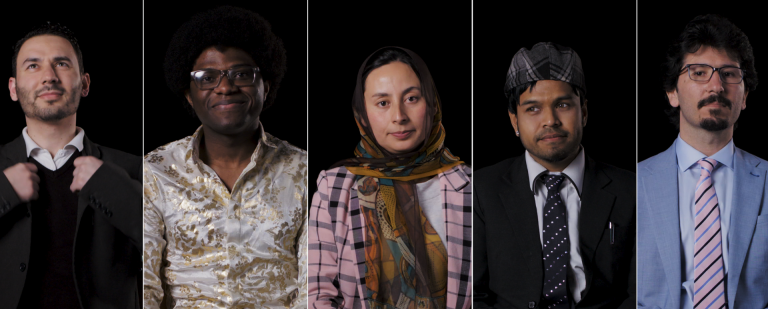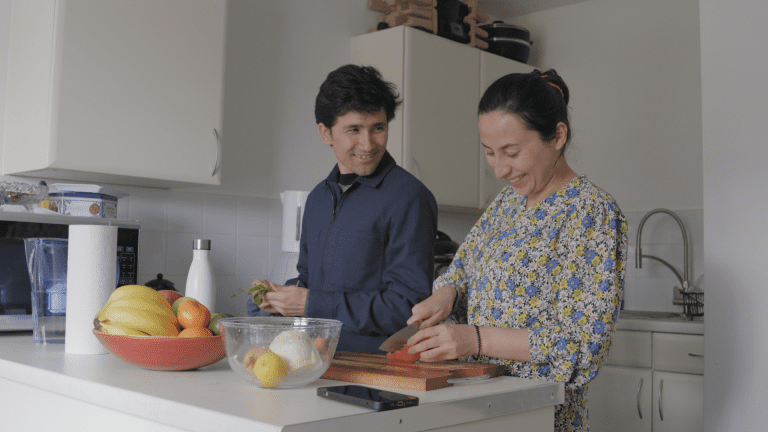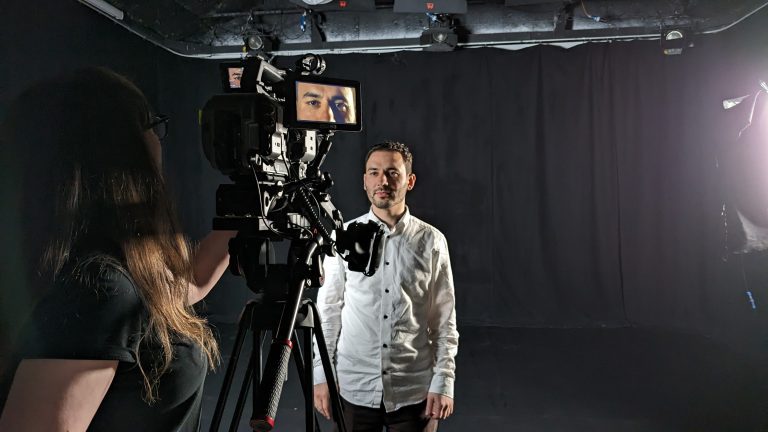Aman (not his real name) worked as a trainee camera operator on ‘My (Refugee) Life‘. True to the values of Breaking Barriers, five trainees were recruited from the refugee community to form a trainee production crew for the film. Working closely with the Postcard Production team, the trainees brought their lived experience to each stage of production – coordinating the project, researching, directing, filming and editing.
I first arrived in the UK in 2019. Before coming, I had just finished my 12th Grade Diploma and had some voluntary experience working with family and working at school.
Coming to a different country and culture is hard. It’s going to be because every country works in a different system, and things like language barriers make a big difference for people to successfully get into education or work or anything.
As a refugee, and someone who’s worked as a volunteer with refugees and asylum seekers, I feel like the topic of ‘My (Refugee) Life’ was particularly important to me. I was in a similar situation with housing for a long time. I was put in hotels for 3-4 months and have been in temporary accommodation, so I know how it feels. I always question why people are kept there, with no updates and no stability.
I have a genuine interest in creating change within the asylum process. I believe giving a voice and sharing information with the public is important, so when I was first told I had got the position working on the documentary, I was really excited and nervous at the same time.
First days are always hard. I didn’t know what to expect, and I was nervous, but Postcard Productions were really understanding of people’s circumstances or difficulties. At first I thought there was going to be pressure, but the team was really nice and friendly and that just makes everything easier! We could ask to take a break whenever we wanted to, and there was no pressure at all. This was really important to me as I suffer from mental health issues, and knowing that my surroundings were easy-going and flexible made me able to do my best.
I feel like the best part about being given the trainee role has been the cause – it’s recognising refugees and, as a refugee myself, seeing and being able to be in the position was therapeutic for me.
This film is putting a message out there that we all struggled at some point. It is hopefully going to change a few things for the better. We are being heard – there is a message inside the documentary, and the message is powerful.
The traineeship gave me the opportunity to develop new skills. I have learnt how to film confidently, lots of technical skills needed for working cameras and microphones, and the importance of consent forms! After doing the traineeship, I now feel more confident and hopeful about finding new opportunities in the future. In fact, I have actually just completed another training!
Giving training opportunities like the one I’ve been part of is a really good chance for recognition for people who might not feel worth, who might not feel right, or who don’t feel like they fit.
Being a refugee can sometimes be challenging. Give us a chance and allow us to be equal and embrace us as all human beings. Treat one another as your own. See yourself in their position and think about what you’d want to be done for you if you were in that position.
Be more human-like, because we are all humans at the end of the day.




